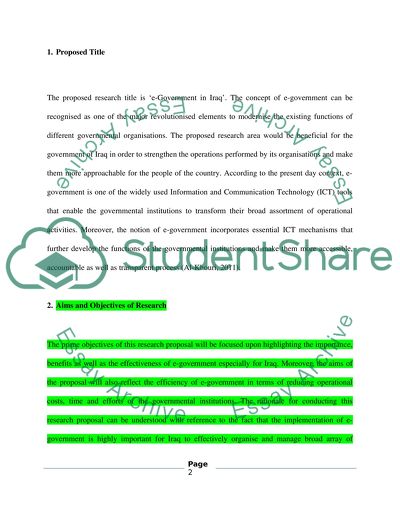Cite this document
(“E-Government in Iraq Research Proposal Example | Topics and Well Written Essays - 1750 words”, n.d.)
Retrieved de https://studentshare.org/politics/1470307-e-government-in-iraq
Retrieved de https://studentshare.org/politics/1470307-e-government-in-iraq
(E-Government in Iraq Research Proposal Example | Topics and Well Written Essays - 1750 Words)
https://studentshare.org/politics/1470307-e-government-in-iraq.
https://studentshare.org/politics/1470307-e-government-in-iraq.
“E-Government in Iraq Research Proposal Example | Topics and Well Written Essays - 1750 Words”, n.d. https://studentshare.org/politics/1470307-e-government-in-iraq.


